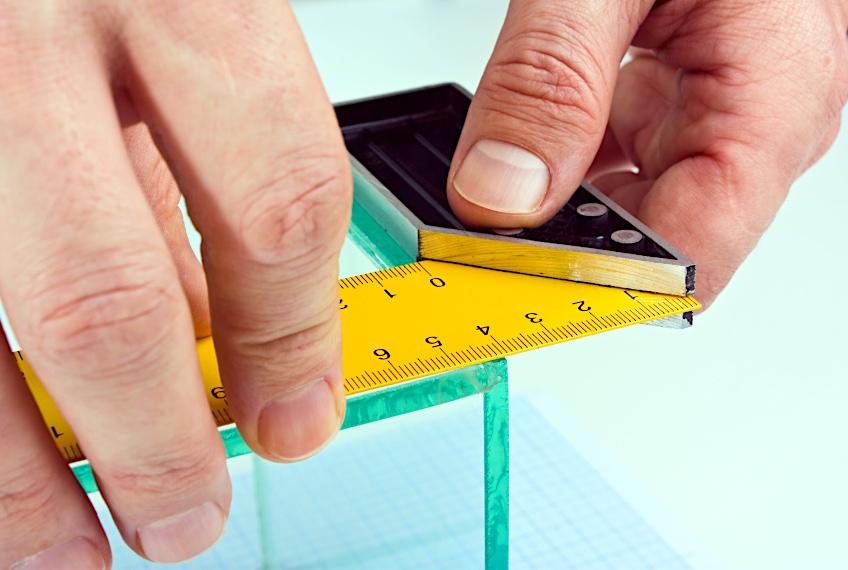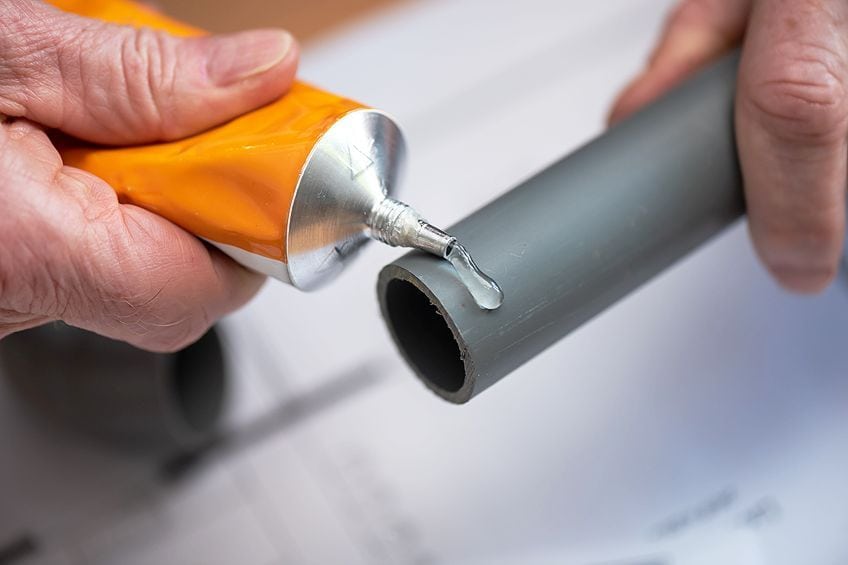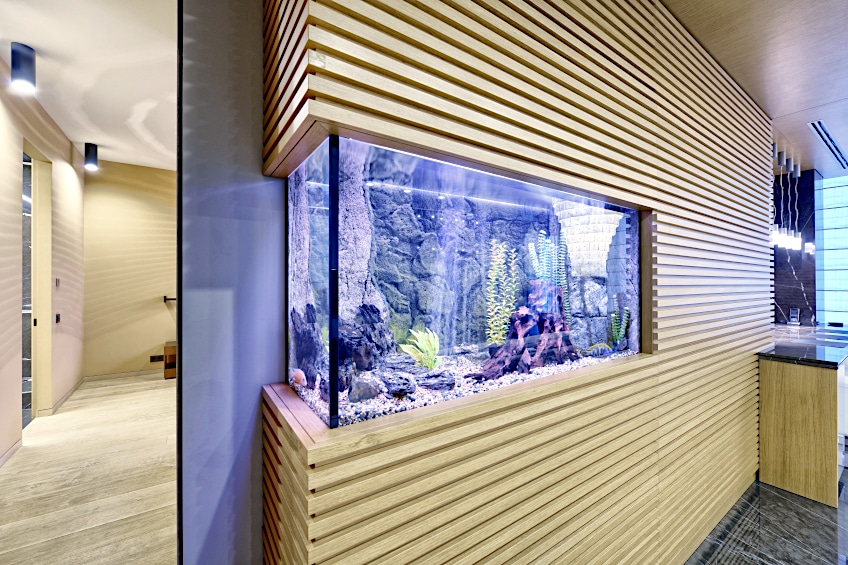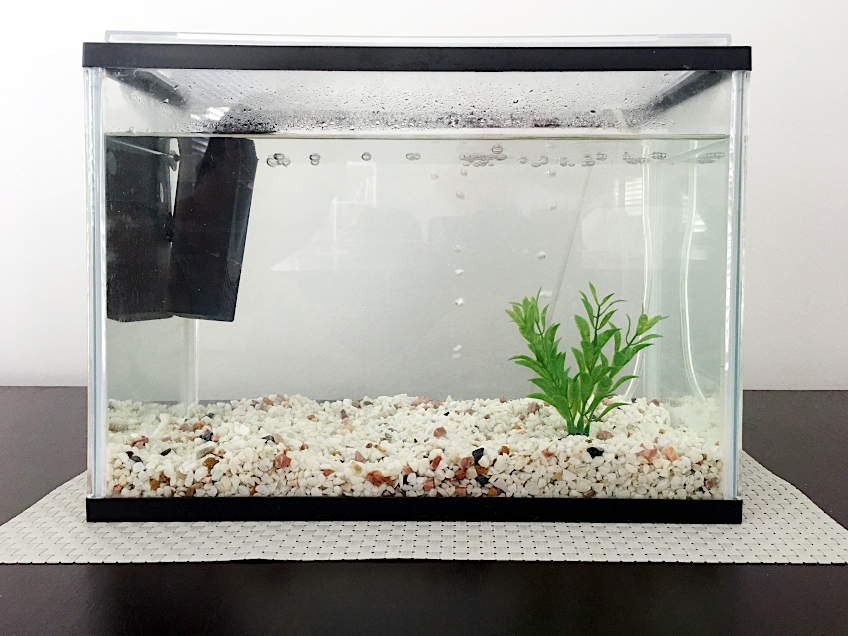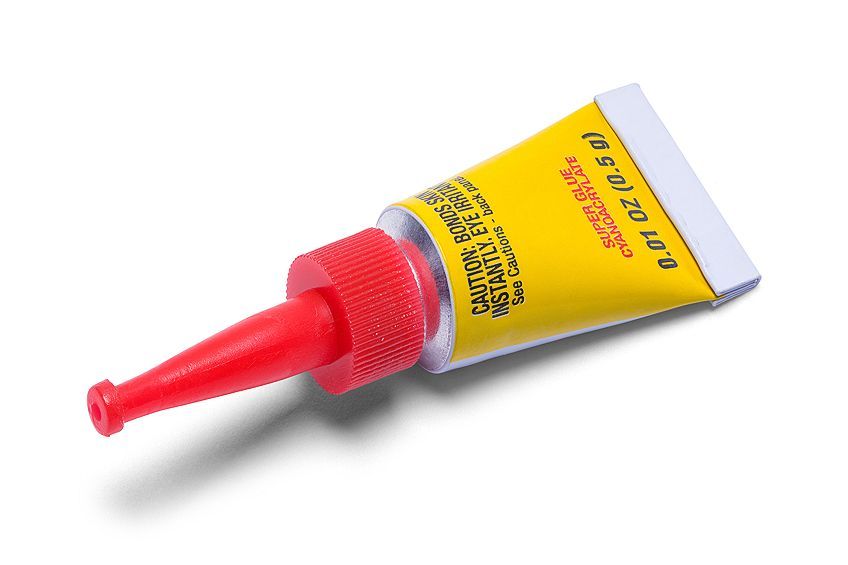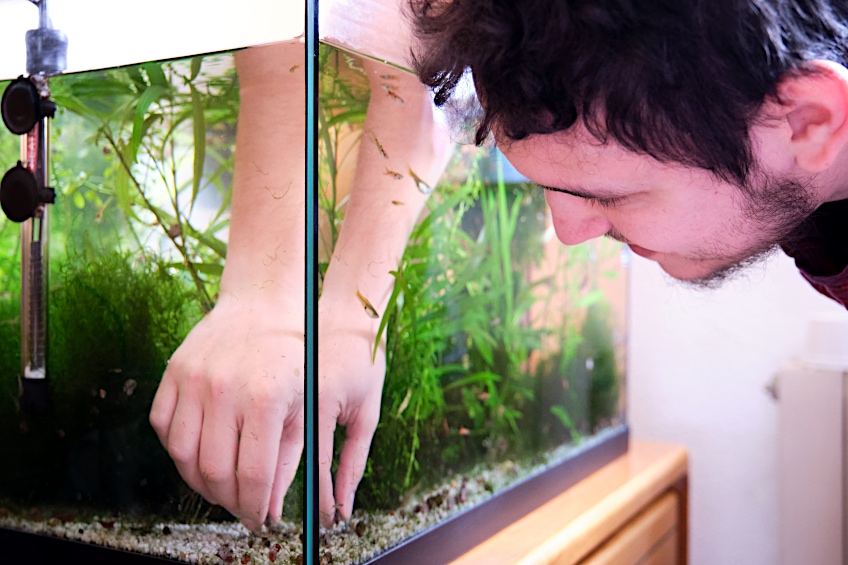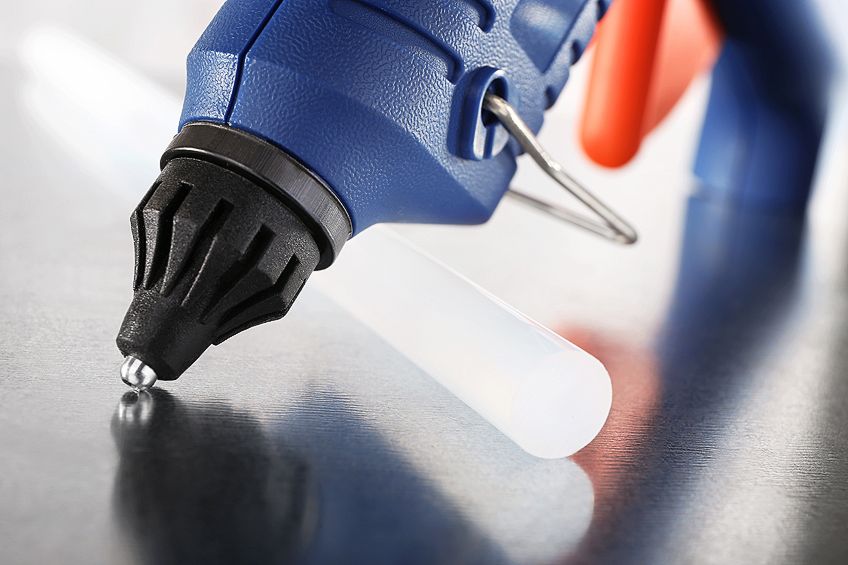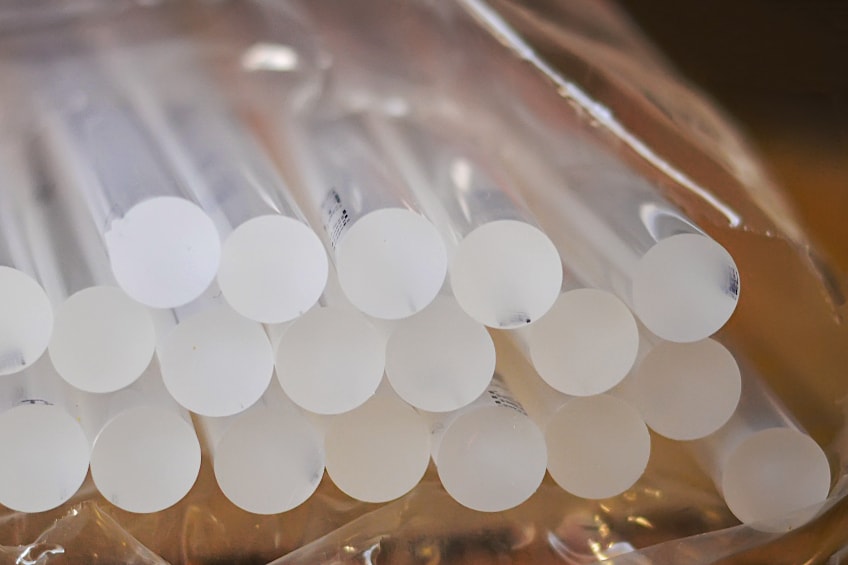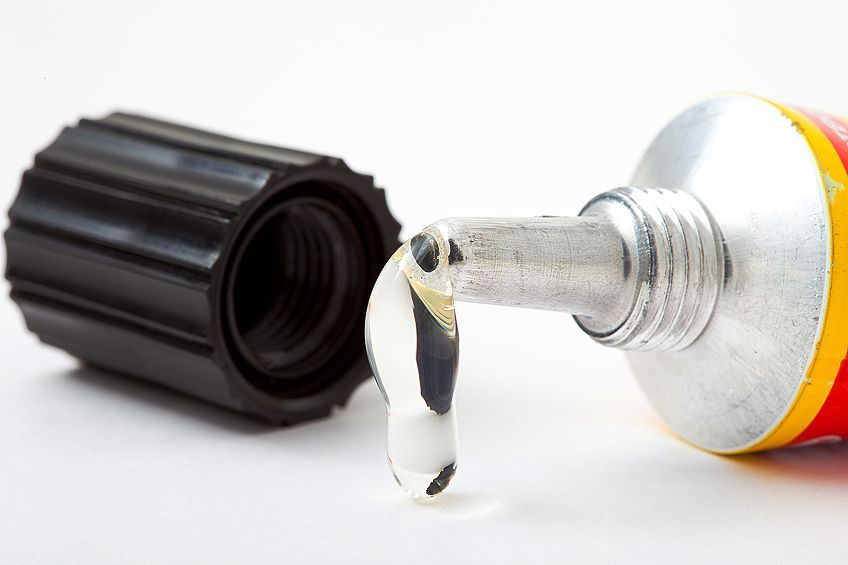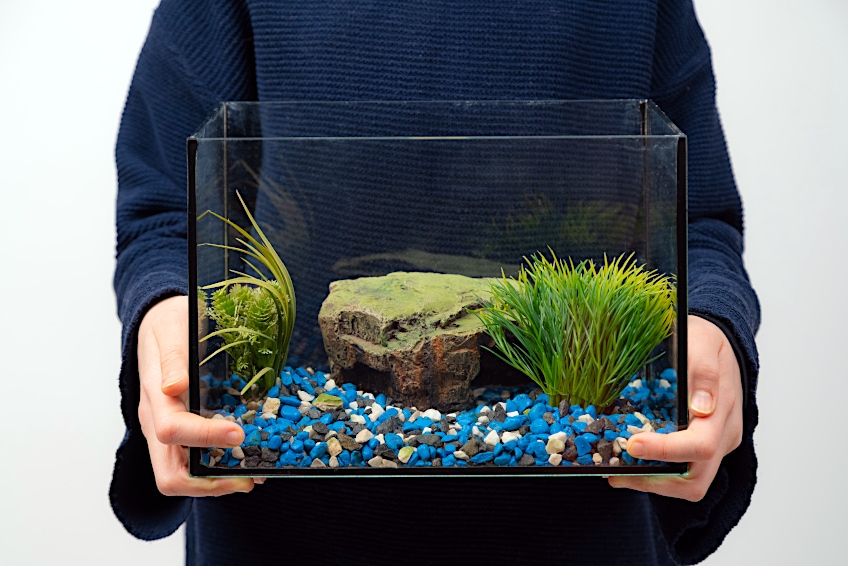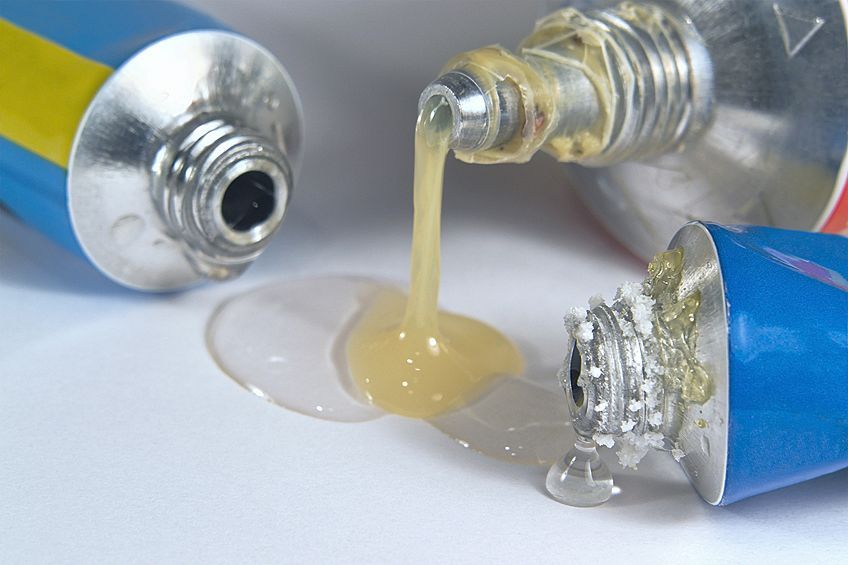Aquarium Glue – Safe Adhesives for Fish Tanks
This post may contain affiliate links. We may earn a small commission from purchases made through them, at no additional cost to you. You help to support resin-expert.com
Aquariums: Little zoos for critters of the sea, we love them and the water pets they allow us to observe and care for, but they can be a bit of a handful to create and maintain (the aquariums, not the fish). When working with aquariums or smaller fish tanks it’s important to make sure that you’re using glue graded for that type of environment, and the forces that the application could exert on your workpiece. What then, makes a good aquarium glue? Let’s have a look at what makes aquarium glues so special, what you can use them for, and what good aquarium glues look like.
Table of Contents
What Type of Glue Is Safe to Use in Aquariums?
As we mentioned previously, only certain types of glue are graded for use in aquarium settings, these glues have little to no effect on the surrounding water and therefore aren’t harmful to the marine life you’re containing. What does aquarium-safe glue look like then? Are there certain brands and/or chemicals you should avoid? Let’s have a look at these aquarium-safe glue variants and find out.
Cements for Aquariums
If you’re thinking about the stuff used to build foundations, you’re not that far off. Aquarium cement is an aquarium-safe adhesive that can be used to lay down props like coral and small rocks without affecting the overall toxicity of the water they’re submerged in.
This type of aquarium safe adhesive is typically used to bond materials that are used in the construction and maintenance materials used in the construction of small and very large aquarium units. Which materials do you ask? Typically, it’s used to bond PVC piping and the clear resin material used to display sea life in large aquariums and DIY homemade ones too.
Aquarium cement doesn’t work in the same way that conventional adhesives do, instead of simply acting as an intermediary between two pieces of material, aquarium cement bonds two pieces of material on a molecular level, effectively fusing the two pieces into one.
A good illustration of the aforementioned is how is used to literally seamlessly fuse aquarium observation “glass together. That’s right, those large panes of what seem to be glass that weave back and forth to form those large aquarium tanks are acrylic materials that have been bonded together using cement (in some cases they are glass though).
There are two types of acrylic cement, namely ones that are watery in viscosity, which is commonly used to bond sheets together and evaporate once they’ve done so, and the thicker cement that is used to fill in the gap and bond things to surfaces in and around your tank. These types of cement should only be used in an aquarium environment when they are completely cured.
Super Glues for Aquariums
When most of us think about superglue we think about the little tube of life-saving glue in our kitchen drawers in case of emergencies, but in the aquarium construction and maintenance industry, it’s even more valuable.
Generally, it’s used to secure rocks and fittings to the inside of the bottom of these tanks, this is done by adhering these ornaments to little plugs which are designed to fit at the bottom of the tank. Is all superglue aquarium safe super glue though? Unfortunately, not.
Ethyl Cyanoacrylate is an aquarium-safe superglue, but it has to be this and this alone, as any other additives in the formula of the adhesive will risk spreading toxicity when it comes into contact with water.
The practice of using these types of super glue to secure fixtures in aquariums is known as fragging, and fragging glues are usually gel-like in their consistency to make them easier to work with and more conducive to holding fixtures in place while they have a chance to cure. You don’t have to use this fish tank glue for fragging either, it can be used to effectively repair a whole host of things such as fixtures, equipment, racking, and even making little rock clusters.
The trick to using superglue in an aquarium setting is to apply it to a given surface and then work it into position while the glue is setting, this allows you to get the perfect composition of elements in your aquarium and get a good feel for the strength of the glue in real-time.
Silicone For Aquariums
If you intend on using glass in aquariums, then silicone should be the tool of choice for sealing things off. This is the primary substance of the substance in an aquarium setting, it quickly and effectively seals off areas that could cause potential leaks or present a structural hazard. What makes silicone so great for this application though?
Well, like a fish tank glue it not only has great bonding strength with sheer surfaces like glass, but it can withstand the sometimes immense pressure that water places on these surfaces without losing any of its grip on the glass panes.
This characteristic is entirely unique to silicone, and that’s one of the most sought-after adhesive substances in the aquarium industry aside from cement. Does this sound a bit too good to be true?
Well, it does do everything we mentioned previously, and it does it pretty well, the only problem beings that when using silicone for aquarium applications it needs to be 100% pure silicone or it will fail and ruin your watertight seal, not to mention leave your home or office full of broken glass.
Not only will impure silicone affect the structural integrity of your tank, but if it contains things like mold inhibitors, anti-bacterial additives, or antimicrobial ingredients, it will ultimately affect the quality of the water in the tank and by extension any marine life present in it.
On the upside, silicone is really easy to use, but one thing you should keep in mind is that you cannot introduce silicone into the water until it has set and cured completely, failing to do so would compromise the integrity of the silicone and your water instantly. This being said, save yourself some time and money by always following the manufacturer’s recommended time period for each respective product.
Hot Glue for Aquariums
While this particular adhesive might feel more at home in the crafting industry, it can be used safely and effectively in the designs and repair of aquariums and submersible equipment. Using hot glue for marine applications is pretty easy, all you need is a stick of hot glue and a hot glue gun and you’re pretty much ready to go.
As the name suggests, the gun heats up the glue and deposits it on the surface of your choosing, effectively the same way the silicone does. Is it as good as some of the other adhesives we have mentioned so far?
Well, this is completely up for debate, plus it really depends on what brand you’re using and on what materials you intend to use it on. There are two types of hot glue that you could use with aquarium and related equipment, namely Ethylene-vinyl acetate (EVA) or Metallocene, the latter being the high-end version and the former being the more affordable variant of hot glue.
The chemicals used in hot glue sticks are generally completely harmless, but you should always consult the labeling and manufacturer to ensure that your water quality won’t be compromised by using it in your tank.
Like silicone, you need to ensure that your hot glue is completely set and cured before it comes into contact with water, but then again it would be pretty difficult to apply hot glue underwater.
You should keep in mind that hot glue does not have the adhesive strength to hold water back, but it does work as an intermediate fix if you ever find yourself in a pinch. This being said, we wouldn’t recommend choosing ho glue as your first choice as an aquarium adhesive if you can help it.
| Type Of Adhesive | Is It Aquarium Safe? |
| Silicone | ✔ |
| Cement | ✔ |
| Epoxy Resin | ✘ |
| Super Glue | ✔ |
| Hot glue | ✔ |
| Thumb Tack | ✘ |
What Can Aquarium Glue Be Used for?
Aquarium glue can be used for a variety of applications, whether you’re building your own tank from scratch, repairing filters, getting some plumbing together, or simply securing things like plant life and decorations, using superglue in aquarium settings can be highly beneficial.
It also serves as a means of avoiding permanent locking mechanisms like clamps or screws which can be costly and time-consuming to install without damaging your workpiece.
Besides these applications, you can use it to make your decorations slightly easier to manage by gluing them together, a good example of this is gluing smaller rocks or pebbles together so they’re easier to collect when cleaning your tank, or simply adhering additional features to the glass or plastic face of your tank.
We don’t recommend trying to get away with using cheaper adhesives on your fish tank, or ones that aren’t graded for use in or around water as you run the risk of contaminating your water supply and/or endangering any marine life living in it. If you’re wondering which adhesives, you should consider specifically, we have a few suggestions for you.
What Is the Best Aquarium Glue?
As promised, we have prepared some of the best aquarium adhesives money can buy for you to have a look at. Remember to choose the right glue for your particular application, as these adhesives work best with their intended materials. Attempting to interchange them might result in poor adhesion.
Best Cement: WELD-ON 16 Acrylic Plastic Cement
does so by chemically bonding to given pieces together to form one seamless piece of material, which is pretty cool.
The Weld-On team seems to know what is expected of this type of product and has designed an acrylic plastic cement that is high quality, extremely durable, and pretty easy to use too. Not only is their acrylic plastic cement robust, but it sets really quickly too which is just perfect for all of those last-minute repairs.
It’s specially formulated for use with plastics and acrylics which means instead of being an acceptable adhesive that works on a ton of surfaces, it’s been purpose-built to give you the best adhesive bond on all your aquarium equipment.
This doesn’t mean it’s not versatile though, it can be used on lenses, signage, letters, and anything else you think needs to be stuck in place permanently! What’s more is that the stuff dries clear, so you don’t have to worry about it upsetting the aesthetic appeal of your workpiece.
- High strength, clear, medium bodied, fast curing, solvent-type cement
- Suitable for acrylics, styrene, butyrate, PVC, ABS, and polycarbonate
- Bonds quickly to form strong joints within hours
- Reputable brand
- Easy to use
- Readily available
- Specially designed for use in acrylic and plastic
- Fast setting formula
- Versatile
- Dries clear
- Cannot be used on other materials
- Sold in small volumes
- Only available in one volume
- Container can be challenging to re-seal
Best Super Glue: GORILLA Super Glue Gel
Remember that the only kind of super glue that you should use on/in your aquarium are ones that are purely ethyl cyanoacrylate, this means that your options are pretty limited.
Thankfully, the super glue gel from the Gorilla team falls into this limited category of glues, which means you’re pretty much good to go! Gorilla has become somewhat of a household brand in recent years and has provided us with tons of new products which feature high adhesive strength, durability, and versatility in a wide range of applications.
Gorilla glue is the perfect glue for aquarium plants and since this one features a no-running formula you’ll find yourself using it with far more confidence too. Not only is it versatile and easy to use, but it also features a fast-drying formula that dries completely in just 15 minutes (at the most) which means you’ll have the perfect tool for all of those time-sensitive projects.
Still not convinced? This glue is impact resistant and comes with an anti-clog cap to ensure that your Gorilla glue never dries out while you’re not using it, which is great considering you’ll likely have some lying around. Why would you have some lying around you ask? Well, it can be used in wood, metal, plastic, acrylic sheets, ceramic, and many more surfaces.
- No-run control gel formula that is great for use on vertical surfaces
- Versatile glue with an anti-clog cap to prevent it from drying out
- Specially formulated for increased impact resistance and strength
- Easy to use
- Versatile
- Non-toxic formula
- Sold in single or 10-pack offerings
- Non-run formula
- Sets very quickly
- Impact and abrasion-resistant
- Only sold in one volume cartridge
- Not available in other colors
- Needs to be cured above water
Best Silicone: GE Silicone Clear Window & Door Silicone Rubber
Silicone really is special when working with aquariums. Why? Well, silicone is one of the few materials on earth that has the ability to stick to a sheer surface without damaging it or penetrating it. This means that when you’re joining glass pieces together, this adhesive is pretty much indispensable to you.
The GE team knows this, and they seem to have taken their all-purpose silicone to the next level. You see, only 100% pure silicone can be used when working with aquariums, this is due to impurities presenting a hazard to the purity of the water in aquariums.
This is why GE has provided us with a 100% pure silicone that’s also permanently weatherproof and highly versatile too. Not only is this one of the most versatile pure silicone products on the market, but it’s been graded for use on tiles, walls, vents, wires, plumbing, and even roofing.
Did we mention that it’s been designed to meet federal specifications too? There isn’t a lot more than you can ask for when looking for silicone for your next aquarium project, but we do wish that it was just a little bit cheaper. Then again, you do get exactly what you paid for considering there are literally no substitutes for 100% pure silicone when working with aquarium glass.
- 100% Silicone permanently weatherproof
- For use on windows, doors, siding, trim, molding, pipes, and so on
- Adheres to most wood, metal, vinyl siding, drywall, glass and plastic
- Versatile
- Easy to use
- 100% pure silicone
- Weatherproof
- Meets federal specifications
- Easy to store
- Expensive
- Only available in two colors
- Only sold in one volume
- Caulking gun sold separately
Best Hot Glue: SUREBONDER Mini Hot Glue Gun
aid than anything else. This being said, if you happen to get hurt you probably want the best band-aid available as opposed to having one from the dollar store that might fall off the second you put it on.
The Surebonder team agrees with this philosophy, and while it might be a temporary solution, they offer a hot glue gun with twelve glue sticks that come ready to use for what we feel is a ridiculously low price.
It even comes equipped with two heat settings so you can adjust the rate of application while you work, but it doesn’t stop there, the Surebonder team gives you an ergonomically friendly glue gun that’s easy to manage and lightweight too.
Still not sold? Consider that it comes equipped with an integrated kickstand and a six-inch cord to give you all the freedom of movement you’ll need while fixing up your workpiece. Besides, you have a perfectly good hot glue gun and a ton of glue sticks left over for other projects should the need arise, so we feel like it’s well worth the investment to give the Surebonder team’s hot glue gun package deal a try.
- 20-Watt tool with temperature adjust switch on handle
- Comes ready to use with 12 mini glue sticks
- Suitable for fabric, paper, Styrofoam, metal, plastic, rubber, and wood
- Easy to use
- Versatile
- Incredible value for money
- Reputable brand
- Ergonomically friendly
- Easy to store
- Cannot be used as a permanent fix for aquarium equipment
- Not heat or impact resistant
- Not all hot glue is graded for use with marine life habitation
What Should You Look for in an Aquarium Glue?
Using superglue in aquarium settings can be a bit unnerving, especially when you have fish involved. Besides toxicity, there is always the chance that the glue won’t hold, and you’ll be stuck with a huge mess on your hands.
So, what should you look for in a good aquarium glue then? Well, this isn’t the easiest question to answer as there are certain adhesives that have been designed for certain applications. This often means that these glues function poorly outside of their intended uses, which means you’ll likely find yourself buying a range of products for all these needs.
A good aquarium glue then, is one that is versatile, poses no potential risk of contaminating your water, has good tensile strength for its given application, dries clear, and is easy to use. Although it’s certainly not impossible, you would be hard-pressed to find glue for aquarium plants, rocks, glass, and pebbles that ticks all of these boxes, so we recommend choosing wisely and shopping around as much as possible before settling on a product.
Now that you know what aquarium glue is, what types of fish tank adhesives are available to you, what a few good aquarium adhesives look like, and what to look out for when choosing glue for your next aquarium project, it’s time for you to get out there and put your newfound knowledge to the test. Remember to shop around and ensure that the glue you’re using won’t be harmful to your water or marine life.
Frequently Asked Questions
What Is a Good Glue for Aquarium Plants?
This is a pretty common question, and the simplest answer is super glue. Using pure superglue with no additives will ensure that your plants remain secure in your tank without contaminating your water or marine life in your fish tank.
Is Hot Glue Aquarium Safe?
Is hot glue aquarium safe? Well, as long as the hot glue you’re using is fully set before it comes into contact with the water in your tank it should be fine. We insist that you always check the chemical content of your hot glue sticks through the labeling of your product and/or by contacting the manufacturer.
Can You Use Aquarium Glue Underwater?
You can use aquarium glue underwater or as a means to seal off sections that might get wet. This is due to the special formulation of the glue which makes it highly resistant to things like pressure and moisture.


